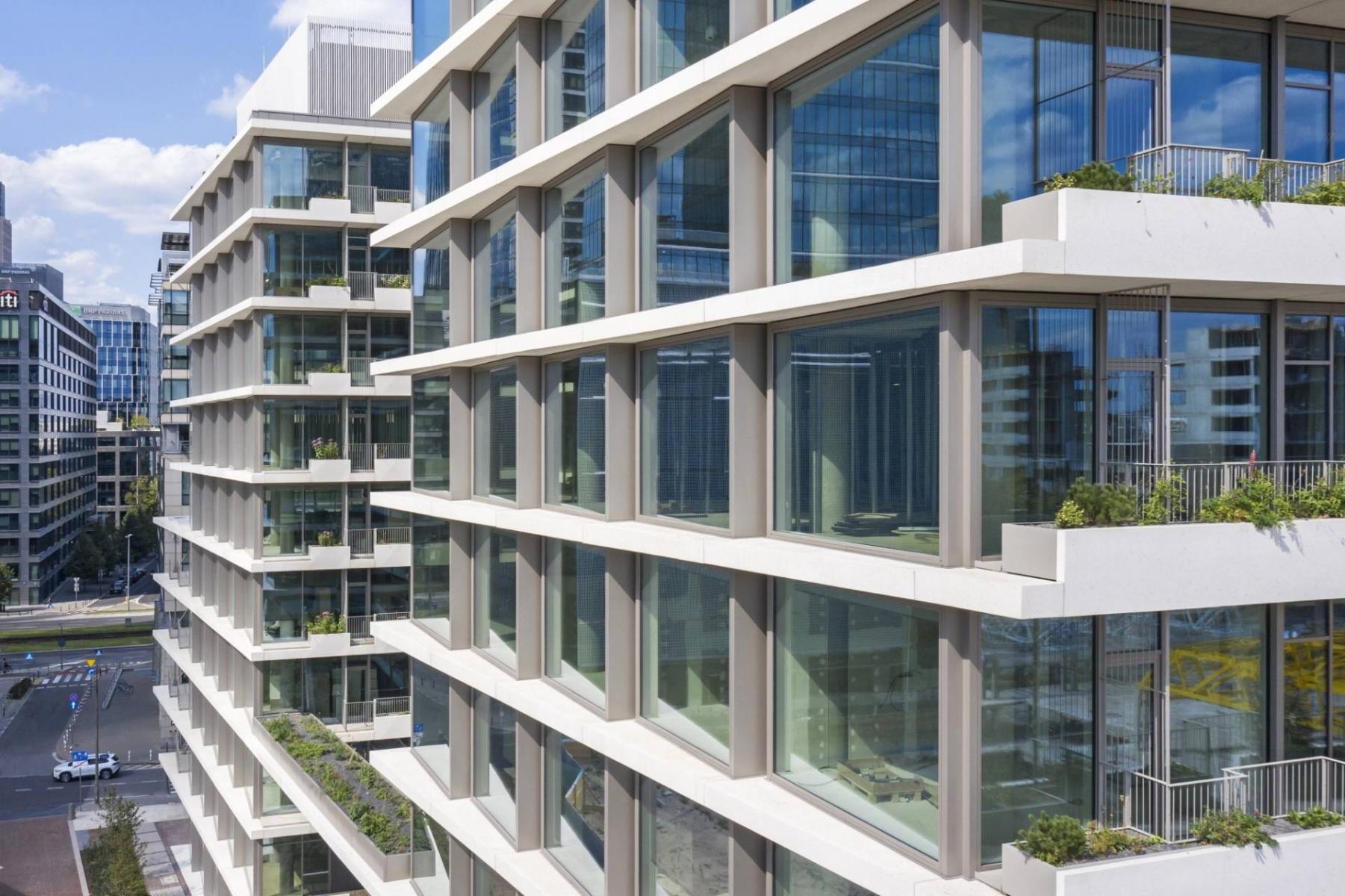Office House in Warsaw Introduces Waste Heat Reuse Technology
Office House, the first completed building within the Towarowa22 development in Warsaw, has become the first office project in Poland to implement a system for reusing waste heat. The technology, introduced in cooperation with Veolia Energia Warszawa, is designed to recover heat generated by the building’s air conditioning system and feed it back into the city’s district heating network, which is the largest in the European Union. According to the developers, the recovered energy could supply enough heat for approximately 800 flats annually.
The building received a BREEAM Outstanding certification with a record score of 97.9%, the highest achieved in Warsaw to date. Developers AFI, Echo Investment, and Archicom attribute this to a range of sustainability measures, including the reuse of waste heat, rainwater retention, and the use of recycled construction materials.
AFI Poland stated that the building’s primary energy demand is 32% lower compared to traditional office buildings. Veolia, which operates the municipal heating network, describes the “Hybrid Node – Heat Prosumer” system as a method that integrates municipal heat with local renewable sources, reducing environmental impact and reliance on conventional energy.
Office House provides 32,000 square metres of office space, accommodating around 3,000 employees. Tenants include professional services firms and logistics companies, with restaurants and services planned on the ground floor. The building also incorporates features such as photovoltaic panels, a three-layer façade to improve insulation, and green spaces including conservatories and planted balconies designed by JEMS Architekci.
The Polish Green Building Council has recognised Office House as the “most sustainable project” of the year. The broader Towarowa22 area is expected to be complemented by new public spaces, including a park scheduled for completion by the end of 2026.









